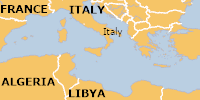RSS Feed Source: Academic Keys
The Nature Inspired Surface Engineering (NISE) Lab led by Dr. Chang-Hwan Choi (https://personal.stevens.edu/~cchoi) is seeking for a highly motivated postdoctoral researcher who has strong experience and interest in micro/nano-fabrication and thermal/fluid experimentation for various energy applications including the sponsored research project on thermal diode (https://www.nsf.gov/awardsearch/showAward?AWD_ID=2344148).
To apply, please send the following materials in a single PDF file to Dr. Chang-Hwan Choi at [email protected].
– A cover letter detailing your research interests and career goals.
– Curriculum vitae (CV) including a list of publications.
– Contact information for three references.
Click this link to continue reading the article on the source website.


